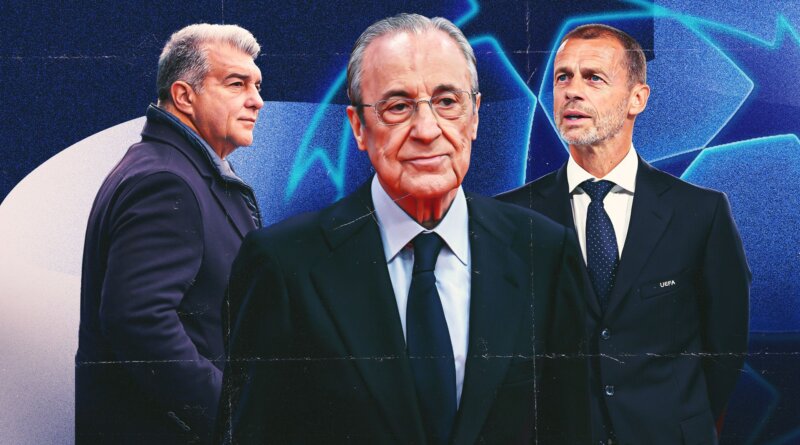Barcelona Exit Leaves Real Madrid Isolated in Super League Saga
European Super League Turmoil: Barcelona’s Withdrawal
European Super League debates have shifted dramatically in recent days, with Barcelona’s confirmed withdrawal marking a pivotal moment in the project’s turbulent history. The Catalan giants, once part of the original group of twelve founding clubs, have now distanced themselves from the controversial competition. Real Madrid stands alone as the last major backer, raising urgent questions about the future of both the Super League and European football governance.
Why Has Barcelona Withdrawn From the European Super League?
Barcelona’s decision to exit the European Super League comes amid ongoing controversy and backlash from fans, governing bodies, and other clubs. Sources from Spain, including RAC1, confirm that internal discussions led the club to reconsider its stance. The main reasons cited include damage to the club’s reputation, friction with UEFA, and alignment with the broader interests of European football.
This move isolates Florentino Perez’s Real Madrid, the most persistent advocate for the Super League, which was envisioned as a breakaway competition challenging UEFA’s authority. With Barcelona now out, the legitimacy and practicality of the Super League appear increasingly untenable.
European Super League’s Impact on Champions League Reform
Despite Barcelona’s withdrawal, both the Catalans and Real Madrid—alongside A22 Sports Management—have reportedly engaged in seven rounds of negotiation with UEFA. The discussions revolve around further changes to the Champions League format, even though a major revamp was rolled out just last year.
These talks illustrate that while the Super League’s future seems grim, the core issues driving its creation—such as financial sustainability, competitive balance, and club influence—remain unresolved. It is highly likely that another round of Champions League reform could be on the horizon, influenced directly by the concerns raised during the Super League saga.
The Fallout: Football’s Civil War and Its Aftermath
The emergence of the European Super League sparked what many have called a footballing civil war, fracturing alliances and provoking heated debates among clubs, fans, and authorities. The mass withdrawals by English clubs and others signaled the project’s deep unpopularity, with accusations of greed and disregard for tradition echoing across the continent.
Barcelona’s departure marks a significant turning point, bringing the conflict close to resolution. However, Real Madrid’s continued support suggests the story isn’t over yet. Football governance at the highest level is still in flux, with power battles likely to persist.
The Future: Will the Champions League Change Again?
With only Real Madrid supporting the European Super League, UEFA finds itself in a strong negotiating position. The organization has already responded to club concerns by modifying the Champions League’s structure and expanding participation. Yet, the recent negotiations indicate further changes may be forthcoming, potentially introducing new financial incentives and competition formats.
For fans and clubs alike, the prospect of another Champions League overhaul is both exciting and unsettling. The challenge will be to balance tradition with innovation, ensuring the competition remains compelling without alienating supporters.
Opinion: Is This the End of the Super League Dream?
The European Super League’s collapse following Barcelona’s withdrawal reflects the enduring power of fan voices and traditional football values. Real Madrid’s lone stance hints at unresolved tensions over finances and governance in European football. While the prospect of a breakaway league now seems remote, its legacy could be a more dynamic, club-driven approach to future Champions League reforms. Ultimately, any changes must prioritize the integrity of the sport and the interests of its supporters.
For more news and in-depth coverage of football’s biggest stories, visit for more news.
Your global gateway to nonstop football coverage:
News Goal
Share this content:
